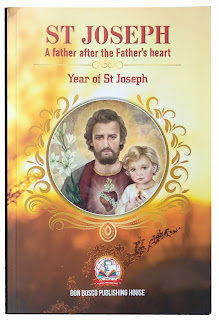The Restless Believers (Book Review)
John Kirvan, C.S.P, The
Restless Believers, Toronto :
Paulist Press Deus Books, 1966, pp. 109.
The first lines of the introduction to the book go thus: “The Restless Believers is a feeling
book. It is closer to being a shared experience than a theological analysis.” I
couldn’t agree more. The author takes us through a series of issues confronting
young people of his day. He gives us some of their responses and their take on
these issues and challenges us to come up with ways of responding or meeting
their needs. He doesn’t venture to provide any solutions and so, those looking
for readymade solutions will be disappointed.
The book has 11 chapters, each focusing on a problem faced
by young people. As I read through, I was beginning to form the impression that
some of the problems and a good number of the author’s ideas were conspicuously
pre-Vatican but when I cross-checked the date of publishing the book, I
realized that it was published in the immediate post-Vatican period and so the
influence of the Vatican
was not very strong. The author does however make mention of the Vatican
Council in the latter chapters and hints at its possible outcomes and
influences on the faith and beliefs of the restless
believers.
The book is about adolescents and young adults and their
struggles to believe in Catholic doctrine. During this phase of life, the young
person is questioning his faith and beliefs. She is beginning to recognize the
need to develop and change her previous beliefs. Hence, this is a critical
time- a time when faith can be made or broken. Throughout the book, there is a
lot of talk on faith: what it is and isn’t. But the focus is on the believer
and how she must undergo this battle. Other topics explored include: Morality,
Sacred-Secular divide, Pluralism-Unity, Rational belief in God and Role of
institutions.
The book is simple and easy to relate to. Those working for
young people will find in it a reflection of what they experience. Even though
the book may seem old-fashioned, the issues it addresses are perennial and
universal and hence, can be of interest to anyone looking to understand a young
persons faith struggle. I recommend this book to all those involved in youth
ministry irrespective of the setting.



Comments
Post a Comment